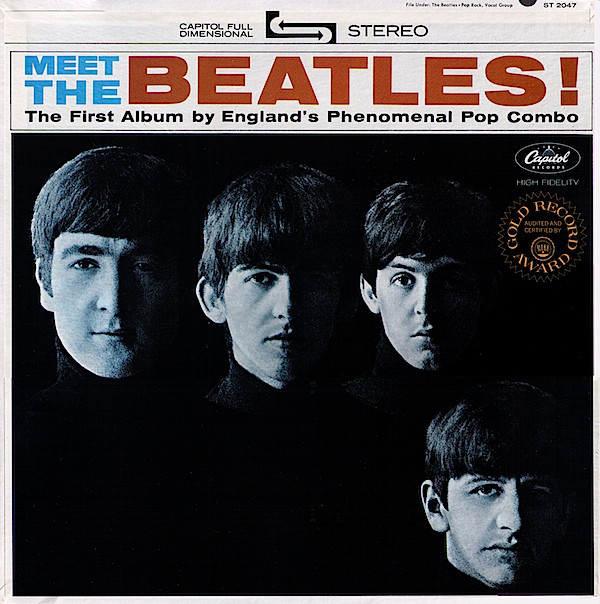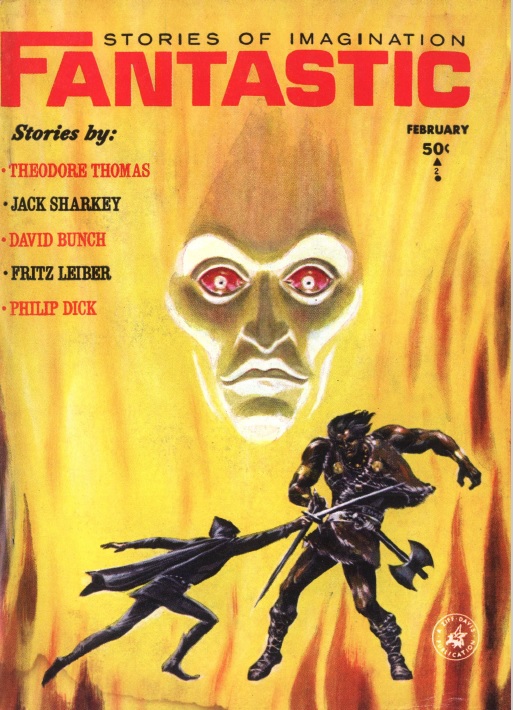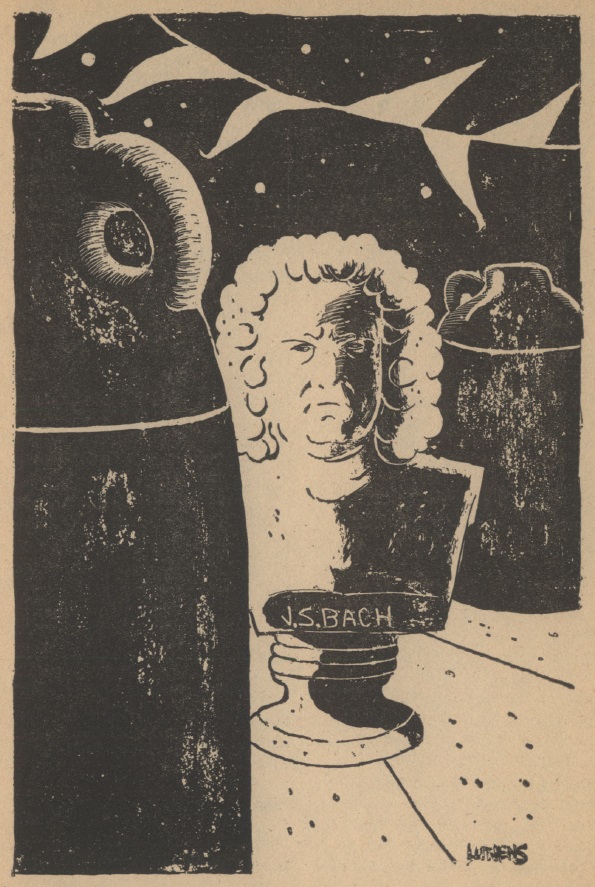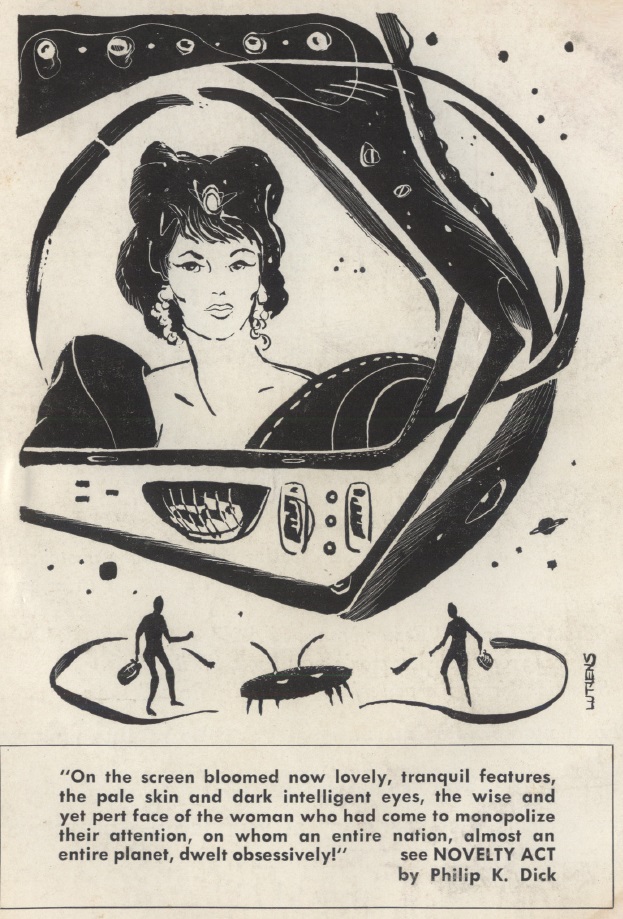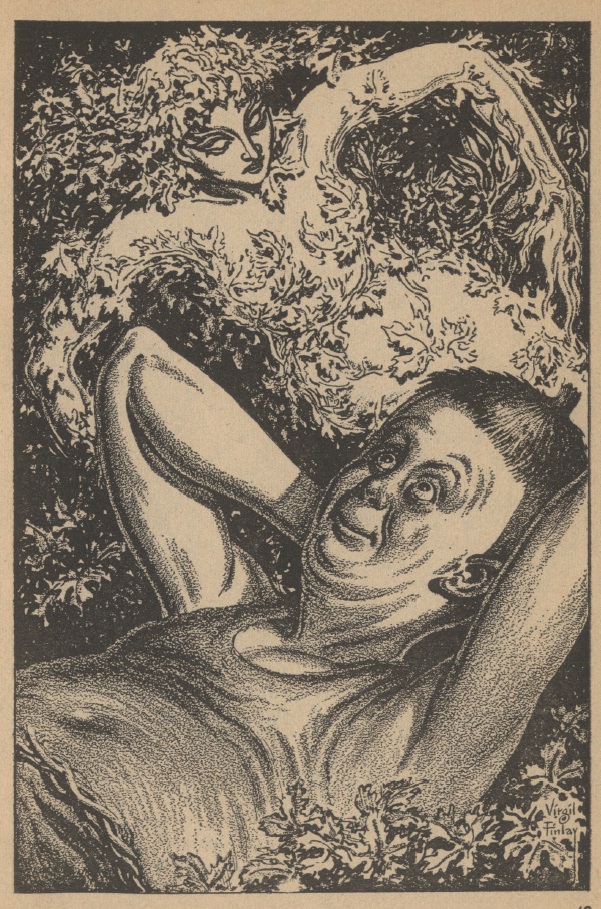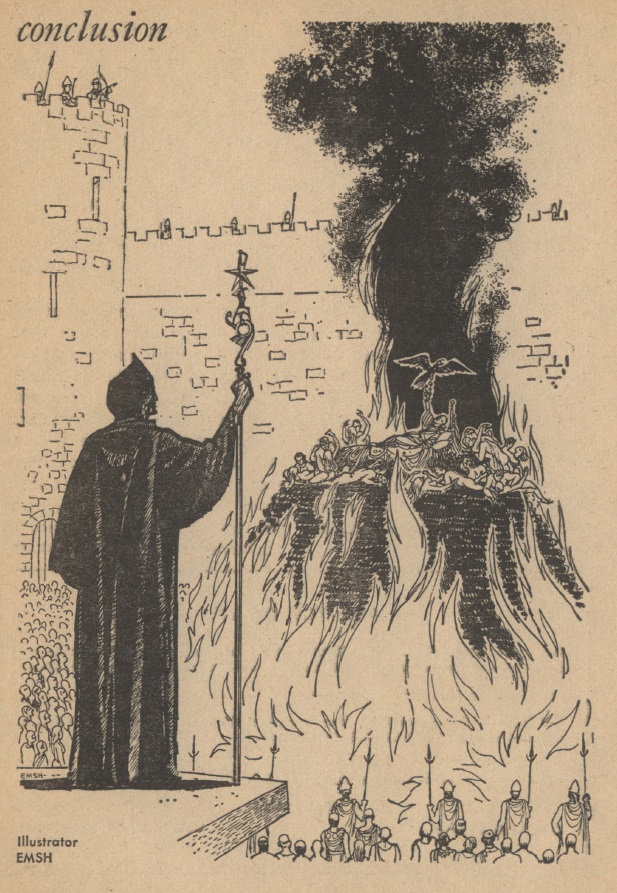[Don't miss your chance to get your copy of Rediscovery: Science Fiction by Women (1958-1963), some of the best science fiction of the Silver Age. If you like the Journey, you'll love this book (and you'll be helping us out, too!)

by Gideon Marcus
To every thing there is a season

Even in timeless southern California, we have seasons. In the Imperial Valley, it is joked, there are four: Hot, Bug, Stink, and Wind. Here in San Diego, spring comes in summer, summer comes in fall, fall comes in winter, and winter not at all.
Yet here and there, we see a deciduous tree start to change color. The end-of-summer mornings have a hint of chill in them. Things proceed in an endless cycle.
The same is true of The Magazine of Fantasy and Science Fiction. Last month, I raved over a superlative issue, an increasing rarity under the current editorship of one Avram Davidson. I am sad to report that things are back to form in this month's issue.
I think part of the problem is that, as Davidson cheerfully confesses, he's not really into science fiction. He bounces off the truly hard stuff, like Martin Caidin's quite good Countdown and fills his magazine with fantastic fluff…and then has the temerity to complain that people don't sent him plain old rocket stories anymore!
On the other hand, the rumor has been confirmed — Davidson has moved to Berkeley from Mexico, and someone else is taking over the magazine. I hear that Joe Ferman, currently publisher, will take the helm, but that his son, Ed, will do all the work. I look forward to seeing what they bring to the table.
But first, let's take a look at what is possibly Davidson's last editorial effort, what he optimistically calls an "All Star Issue".
Autumn Harvest

by Chesley Bonstell
Once again, the cover is stunning — and utterly unrelated to the contents of the issue. It's a depiction of an ion-drive propelled ship off of Mars, and it's from the book Beyond the Solar System, presumably available on bookshelves near you.
Purple Priestess of the Mad Moon, by Leigh Brackett
The first of the All Stars is the legendary Leigh Brackett, queen of pulp and accomplished screenwriter. This tale actually began as a joke nine years ago, when a fictional title was created to represent the kind of fiction Brackett excelled at. Purple Priestess is the author's attempt to turn a joke into reality.
It has all the hallmarks of a pulp Mars, from the thin air to the drying canals, the ancient natives who speak High and Low Martian. And, of course, out in the frigid deserts lies an antediluvian evil so terrible that none can experience its presence and fail to gibber.
I enjoyed Lovecraft's stories well enough in the '30s , but I'm disappointed to find one presented unironically in what was once the premier SF mag. Two stars.
The Pro, by Edmond Hamilton
The subsequent piece, by Brackett's husband (of similar vintage) is better. One can't help but see a bit of the autobiographical in this story about a science fiction author who finally gets to see the rocketships he created in fiction become reality at the Cape. Only the launching of the latest of them is not a joyous occasion, for the writer's child is the pilot. Even if the mission goes well, it marks a final rift between father and son, one the writer is sure can never be bridged.
A bit maudlin but enjoyable. Three stars.
Stomata, by Theodore L. Thomas
Thomas' latest short story idea disguised as a non-fiction article takes the idea of stomata, the pores that allow plants to respire, and posits an race that uses them for everything — breathing, eating, excreting.
I don't know how plausible the idea is. On the other hand, Pinky the Blob, debuting in one of my upcoming books, employs exactly this mechanism. Great minds think alike.
Three stars.
Maid to Measure, by Damon Knight
Five years ago, Damon Knight came out with What Rough Beast, a story so excellent that I'm reading it again in the Spanish edition of F&SF.

Maid to Measure, a joke-ending vignette about a shape-changing girl, is as trivial as Beast is momentous.
Two stars.
Little Anton, by Reginald Bretnor
Bretnor is perhaps better known to the readers of F&SF as Grendall Briarton, composer of the recently finished series of "Feghoot" pun stories. After reading this awful reprint, the story of an idiot savant inventor with a tedious Swiss accent and a penchant for pinching posteriors, I'm actually nostalgic for Briarton.
One star.
First and Rearmost, by Isaac Asimov
Doc A. turns in an above average science article this month, all about how gravity stacks up to the other three primal forces of the universe: electromagnetism, the weak nuclear force, and the strong nuclear force (his omission of love and money are probably deliberate). It's all stuff I knew already, but he lays it out nicely for laymen.
Four stars.
The Year of the Earthman, by Hogan Smith
An old, radiation-scarred astronaut goes AWOL to marry a lovely extraterrestrial lass, dying just moments after he learns that they will have a son. And then we learn the truth of the space traveler's existence.
Not a bad tale, though it makes little scientific sense. Also, Hogan Smith is the opposite of an All Star — this is is first story! But he's from San Diego, so all is forgiven.
Three stars.
In What Cavern of the Deep, by Robert F. Young
Robert F. Young's little autobiography at the front of Cavern is quite interesting. Like me, he came into the genre by way of Burroughs and then Wells, and also like me, he tried making an honest living before deciding that writing is the most fun one can have with their hands — especially if one gets paid for it!
Young writes stories inspired by mythology and folklore, and while he has come out with some of my very favorite stories, his works from the last several years have been disappointing and mawkish. His latest falls somewhere inbetween.
David Stuart is a poor young man made rich through inheritance from an uncle. While investigating the deceased's estate, he comes across two swimming sisters and promptly falls in love with Helen, the blonder of them. But the ensuing marital bliss is dashed by the revelation that Helen is growing taller by the week, approaching titanic proportions after just a year. It's sort of an inverse of Richard Matheson's The Incredible Shrinking Man. At the same time, David's wife becomes more and more enamored with bodies of water, swimming constantly and even growing gill slits.
Is Helen a beast of the sea? An alien? And is the story going to end horrifically (as set up in the prologue) with David hurtling five smooth stones to smite his monstrous love?
Cavern is a bit of a departure from Young's previous stories in that, though he makes conscious references to the biblical King David, this is more to obscure the plot than to outline it. The piece is told with Young's usual excellent facility, and I found myself eager to get to the end.
On the other hand, the end is just a bit too pat, too clearly presented to be very satisfying. What could have been a 4 or even 5 star story ends up on the high end of 3.
Empty Cornucopia
If this be Davidson's swansong, he picked a sad note to go out on. Maybe he's got one issue more in him before he shuffles off F&SF's bridge — I'd like to have fonder memories of this phase of his career!

[Come join us at Portal 55, Galactic Journey's real-time lounge! Talk about your favorite SFF, chat with the Traveler and co., relax, sit a spell…]

![[September 22, 1964] Fall back! (October 1964 <i>Fantasy and Science Fiction</i>)](https://galacticjourney.org/wp-content/uploads/2019/09/640922cover-672x372.jpg)
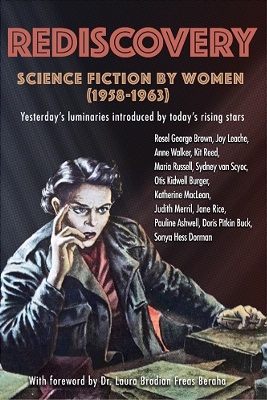

![[August 21, 1964] The Good News (September 1964 <i>Fantasy and Science Fiction</i>)](https://galacticjourney.org/wp-content/uploads/2019/08/640821cover-672x372.jpg)








![[July 22, 1964] (August 1964 <i>Fantasy and Science Fiction</i>)](https://galacticjourney.org/wp-content/uploads/2019/07/640722cover-672x372.jpg)


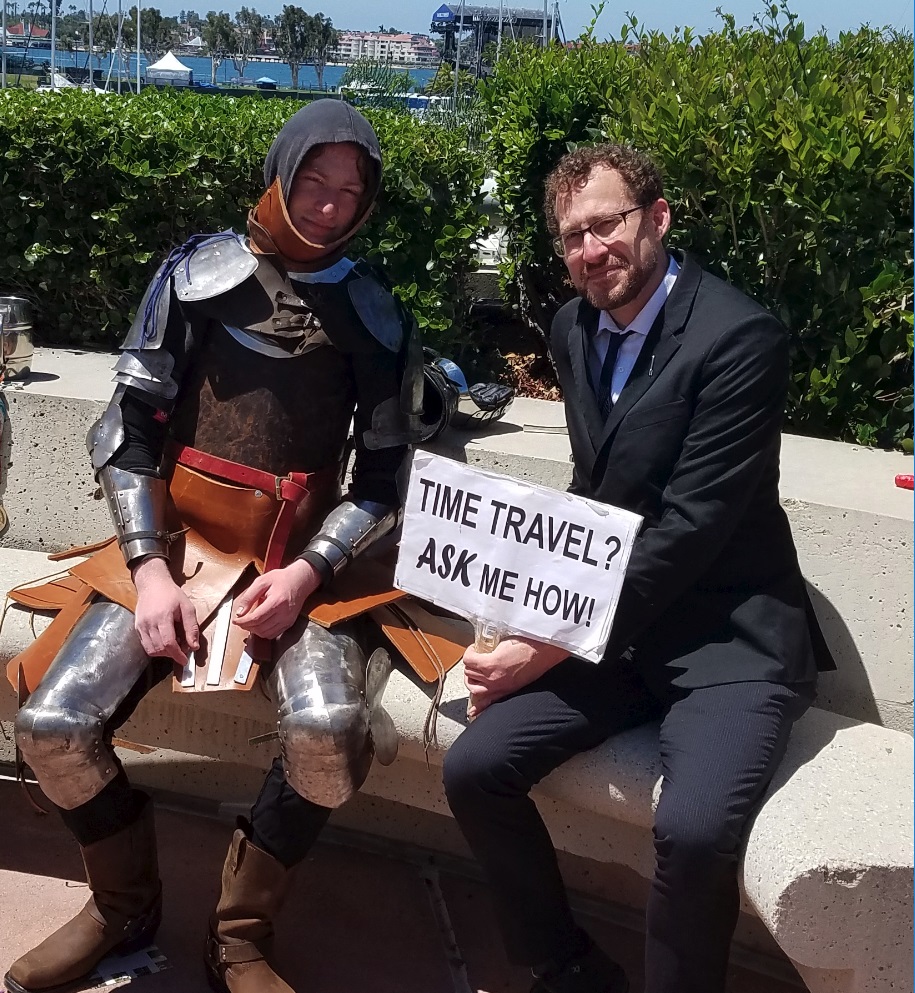



![[June 20, 1964] How low can you go? (July 1964 <i>Fantasy and Science Fiction</i>)](https://galacticjourney.org/wp-content/uploads/2019/06/640620cover-672x372.jpg)
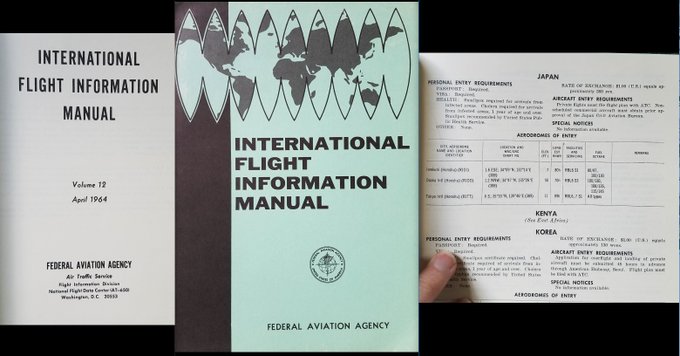







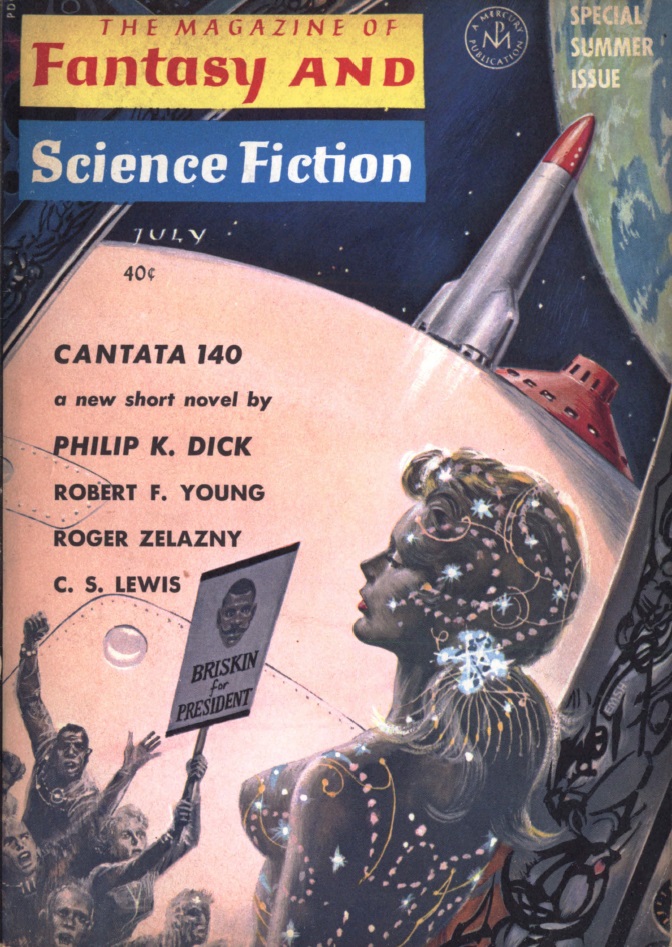
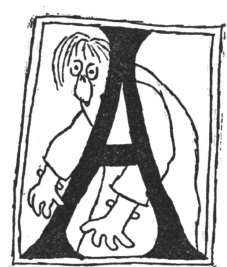
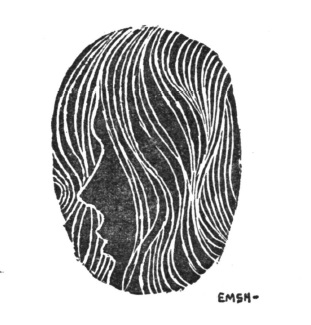



![[May 18, 1964] Aspirations (June 1964 <i>Fantasy and Science Fiction</i>)](https://galacticjourney.org/wp-content/uploads/2019/05/640518cover-672x372.jpg)


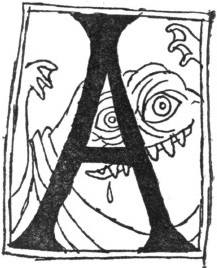 tiny piece in which we learn:
tiny piece in which we learn:
![[April 18, 1964] A firm line (the May 1964 <i>Fantasy and Science Fiction</i>)](https://galacticjourney.org/wp-content/uploads/2019/04/640418cover-1-672x372.jpg)
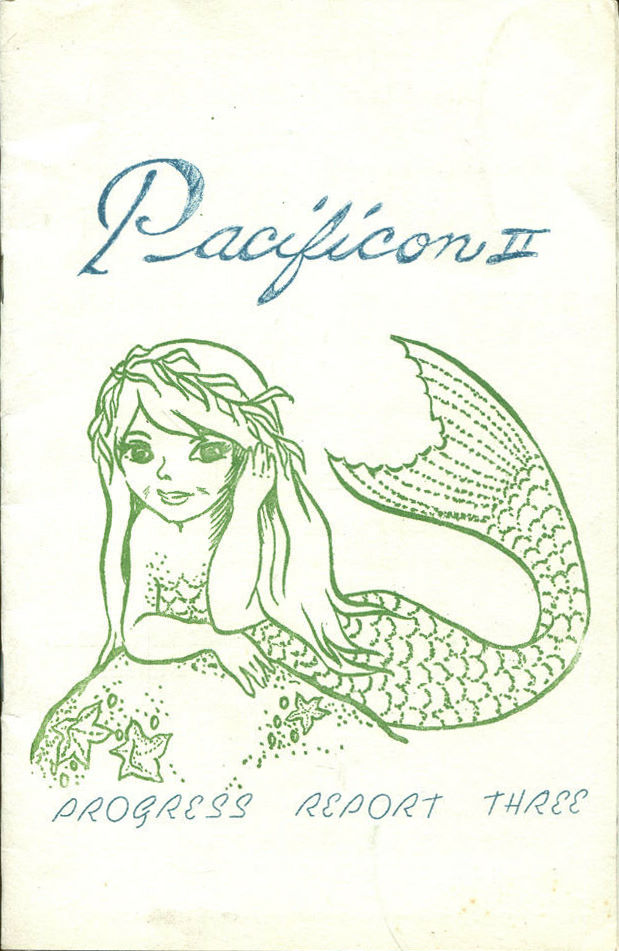



![[January 22, 1964] The British Are Coming! The Americans Are Here! (February 1964 <i>Fantastic</i>)](https://galacticjourney.org/wp-content/uploads/2019/01/640122cover-513x372.jpg)


